Pietro Bartolo, the doctor of the landings: “I come to Varese to tell you what really happens”.
Friday, November 16, 2018 there will be a meeting in the Teatro Santuccio, organized by the Centro Gulliver, under the patronage of the University of Insubria and the City of Varese. The interview, preview of the evening

Pietro Bartolo is the doctor of the landings in Lampedusa. For almost thirty years, he has been the first to see how all the desperate poor are getting off the boats, or are being recovered at sea by local fishermen. He was the first to declare their death, to visit the poor remains to say how it happened. He is the first to see their eyes, to touch their wounds.
Friday, November 16, 2018 he will be in Varese in a meeting at the Teatro Santuccio organized by the Centro Gulliver, with the patronage of the University of Insubria and the City of Varese, with the collaboration of the Mondadori bookstore in Varese and VareseNews, media partner of the event. Interviewing him, there will be our director, Marco Giovannelli.
Bartolo will talk about his experience as a doctor on the front line. An experience of welcoming and care that has not taken away his humanity, but has added more to him: now he is not limited to treating these people, but he also travels around Italy, and writes books, to tell the truth about what is happening in Lampedusa, and about those who face inhuman journeys to be able to come to Europe to seek “a little shelter”.
“THE NUMBER OF LANDINGS HAS DECREASED, BUT THERE’S NO POINT IN BRAGGING”.
“I’ve been working as a doctor on landings for 28 years. The situation cannot be said to have improved or worsened. Of course, the number of landings have been reduced, not only in Lampedusa but throughout Sicily. But from my point of view I do not consider it an improvement: knowing that many people are kept in Libya, I am very sorry, even if crossing the Mediterranean is a deadly danger. In that country, people are treated in an inhuman way.’’
They don’t arrive anymore from Libya, but the lands haven’t stopped.: “The people still arrive, mainly from Tunisia, also in smaller groups. They are mostly young and males, many minors of 16-17 years old. They leave their country for economic reasons: they are from the hinterland where they have nothing and they try play the card of Europe. Of course, someone said that they are criminals, maybe there will be some too. In the end, however, you can’t judge them all the same way, many are kind and well-brought-up”.
“NOT NUMBERS, BUT HUMAN BEINGS WHO HAVE FACED UNSPEAKABLE SUFFERING TO GET HERE”.
Before the repatriation of the refugees arriving from Libya, the situation of those arriving was clearly dramatic: “Normally, they were people arriving from sub-Saharan Africa;, they were malnourished and escaping from torture and war, escaping from certain death. They had many torturous injuries, signs of violence. The most targeted were women, for the sake of sex, raped for humiliation, because women are considered inferior beings”.
But: “We are talking about human beings, not numbers. When we are pleased that 20,000 arrive instead of 100,000, there is nothing to rejoice about. They are human beings, and treating them as numbers that rise or fall is a sign of superficiality, a sign of conceit. And when I see them coming and there are those who want to send them back, I say to myself: are we kidding? We could be us on these boats: hopefully not, but the wheel turns…”.
“THOSE WHO SPREAD HATRED MANAGED TO BRING OUT THE BAD SIDE OF ITALIANS. BUT THAT’S NOT WHO WE REALLY ARE”
Bartolo recalls how, although we have a short memory, these things have already happened to us: Italy has repeatedly been a land of emigration, for reasons that are considered less serious compared to those that push these people to seek help in Europe. “These things have already happened to us, but we forget them because they we want to forget them. There is a horrible campaign of hatred and grudge out there, a campaign that is made up of lies: the great invasion, those who take our jobs… People are easily influenced by these arguments, and then the messiahs arrive, to rescue everyone… But then, what are we rescued from?
That is what he said about the campaign against these people: “It managed to bring out the bad side of Italians, who are not bad. Actually, they are not bad at all. It doesn’t matter, we’ll wait for better times. Many of them are poor people, even those who say bad things. To those who say racist things, what do you want to say? We can only tell them the truth about what happens, in order to break down those mental walls that are so difficult to destroy. But, people must understand where the truth lies. And the truth is that these are poor people who run away from violence, only looking for a little shelter from us. That’s exactly what we did when we went to Australia, Switzerland, Belgium…”.
For them it’s even worse: “When Italians emigrated, they weren’t running away from war or torture. These are people who have dealt with endless journeys lasting years and then arrived in Libya, where they are treated like beasts. And lastly they arrive at the sea and face a deadly danger, like crossing the sea, in order to hope for a better future”.
IN VARESE, AND THROUGHOUT ITALY, TO TELL THE TRUTH AGAINST LIES
With these people in his heart, Bartolo travels around Italy and Europe to tell what he sees in Lampedusa: “I go everywhere: especially to the young people, which I believe so much in. I’m going to let them know what the truth is: I’m going, above all, where they don’t think like me, where they think differently, trying to break down prejudices. And, if when I speak, even one person changes his mind, that means a lot, I’m happy. Of course, it’s a tough thing, it’s hard… you have to move a lot. But I don’t see any other solutions”.
That is the point of view of an inhabitant of an island that is welcoming and is not able, and does not want, to close a door to those who do all this for a better life: “Lampedusa lives thanks to the sea, knowing that that sea has become a cemetery really hurts us, we want it to bring life back. If today I am a doctor, I owe it to the sea: my father was a fisherman, if I could study, I owe it to him and the sea. And if the sea can be cruel, the sea of indifference is worse.
THE STORY OF ANILA IN A BOOK: “I WOULD LIKE ALL STORIES, EVEN IN THE MIDST OF SUFFERING, TO END UP AS WELL AS HERS”.
Bartolo will also present his latest book, “Le stelle di Lampedusa” (The Stars of Lampedusa), which tells, among other things, the story of Anila, in an extraordinarily raw volume written in an exciting way: one of those books that have to be read and gifted, a book that is made for those who want to spread another truth. “I chose the story of that little girl because of her crudeness, but also because I would like all stories to end up as well as hers,” concluded Bartolo. “Anila left on her own, at the age of 8, she faced inhuman things and then rescued her mother and her little brother and rebuilt her family. Not all stories must end badly, even if in the midst of unspeakable suffering. We are not talking about criminals, or people to chase away: many of them are very special people, and we wouldn’t be able to do anything compared to what they managed to do, in the situation in which they were”.
TAG ARTICOLO
La community di VareseNews
Loro ne fanno già parte
Ultimi commenti
lenny54 su A Varese Salvini prova a ricucire passato e futuro della Lega, ma Bossi non c'è
PaoloFilterfree su A Varese Salvini prova a ricucire passato e futuro della Lega, ma Bossi non c'è
axelzzz85 su A Varese Salvini prova a ricucire passato e futuro della Lega, ma Bossi non c'è
elenera su A Varese Salvini prova a ricucire passato e futuro della Lega, ma Bossi non c'è
Roberto Colombo su A Varese Salvini prova a ricucire passato e futuro della Lega, ma Bossi non c'è
flyman su Quarant’anni di Lega e quelle scritte nel paese del “Capo“



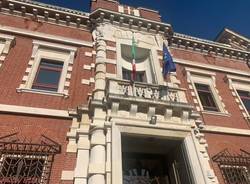


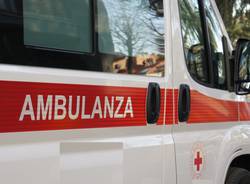
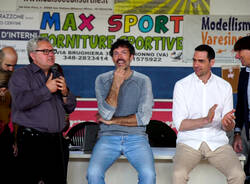
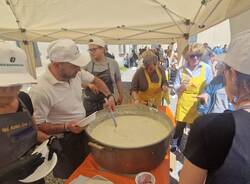
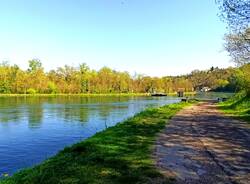
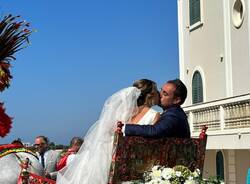

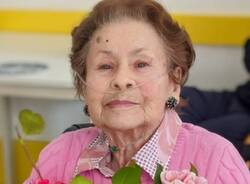

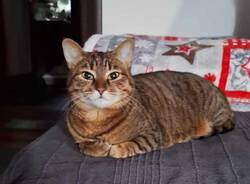


Accedi o registrati per commentare questo articolo.
L'email è richiesta ma non verrà mostrata ai visitatori. Il contenuto di questo commento esprime il pensiero dell'autore e non rappresenta la linea editoriale di VareseNews.it, che rimane autonoma e indipendente. I messaggi inclusi nei commenti non sono testi giornalistici, ma post inviati dai singoli lettori che possono essere automaticamente pubblicati senza filtro preventivo. I commenti che includano uno o più link a siti esterni verranno rimossi in automatico dal sistema.